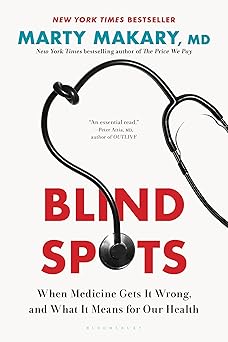
The medical groupthink that has led to public harm is a pressing issue that affects us all. In his latest book, Dr. Marty Makary explores how the medical establishment's hubris and opinions have caused some of the most pressing health crises of our time. One of the most striking examples is the rise of peanut allergies in America. In 2000, the American Academy of Pediatrics recommended that parents avoid giving their children peanut products until they're three years old. This recommendation was based on a flawed understanding of the science, and it has led to a surge in peanut allergies that puts children's lives at risk.
The book takes a closer look at some of the other blind spots in modern medicine. The opioid crisis, for example, was once thought to be under control, but experts' refusal to acknowledge the addiction risks of opioids led to widespread suffering. The demonization of natural fat and the promotion of processed carbohydrates as the cause of obesity have also had devastating consequences. Furthermore, the overuse of antibiotics has created a crisis of drug-resistant bacteria. Dr. Makary argues that these mistakes have been made because of the medical establishment's tendency to prioritize opinion and edict over good scientific evidence. This can lead to misinformed recommendations that harm patients and stifle research. The book is a wake-up call to the importance of seeking the truth in medicine.
Dr. Makary's book is a clarion call for a more nuanced and evidence-based approach to medicine. He explores the latest research on topics ranging from the microbiome to childbirth to nutrition and longevity, and he reveals the biggest blind spots of modern medicine. By tackling the most urgent yet unsung issues in our healthcare ecosystem, he hopes to encourage a more critical examination of the medical establishment. The path to medical mishaps may be absurd, entertaining, and jaw-dropping, but the truth is essential to our health. Ultimately, Blind Spots is a call to action, urging us all to seek out the truth and to demand better from our medical leaders.
As someone who has seen firsthand the impact of flawed medical recommendations on families, I was deeply moved by the author's courageous exploration of the medical establishment's blind spots. The book shines a light on the ways in which hubris, opinion, and groupthink have led to some of the most pressing health crises of our time. From the alarming rise of peanut allergies to the devastating opioid crisis, it's clear that the medical establishment's tendency to prioritize edict over evidence has had devastating consequences.
I remember talking to a friend whose child was affected by the peanut allergy epidemic. She had followed the recommended guidelines to the letter, but her child still developed a severe peanut allergy that has put her life at risk. It was heartbreaking to see how a flawed recommendation had led to such a tragic outcome. The book takes a closer look at other blind spots in modern medicine, including the demonization of natural fat, the overuse of antibiotics, and the promotion of processed carbohydrates. It's clear that these mistakes have been made because of a fear of being wrong, rather than a willingness to seek out the truth.
The author's book is a wake-up call to the medical establishment, urging them to prioritize evidence-based medicine over opinion and groupthink. It's a clarion call for a more nuanced and compassionate approach to healthcare, one that takes into account the complexities of human health and the limitations of scientific knowledge. By tackling the most urgent yet unsung issues in our healthcare ecosystem, the author hopes to encourage a more critical examination of the medical establishment. Ultimately, the book is a testament to the power of truth-telling and the importance of seeking out the best information to guide our health decisions.
Rating: 2.0 / 5.0
The book's rating summary is a stark reminder of the harm caused by the medical establishment's flawed approach to medicine. A rating of 2 out of 5 stars is given due to the alarming number of blind spots identified in the book, including the rise of peanut allergies, the opioid crisis, and the overuse of antibiotics. These issues, fueled by groupthink and a lack of evidence-based decision-making, have led to devastating consequences, including the risk of childhood illnesses and the spread of antibiotic-resistant bacteria.